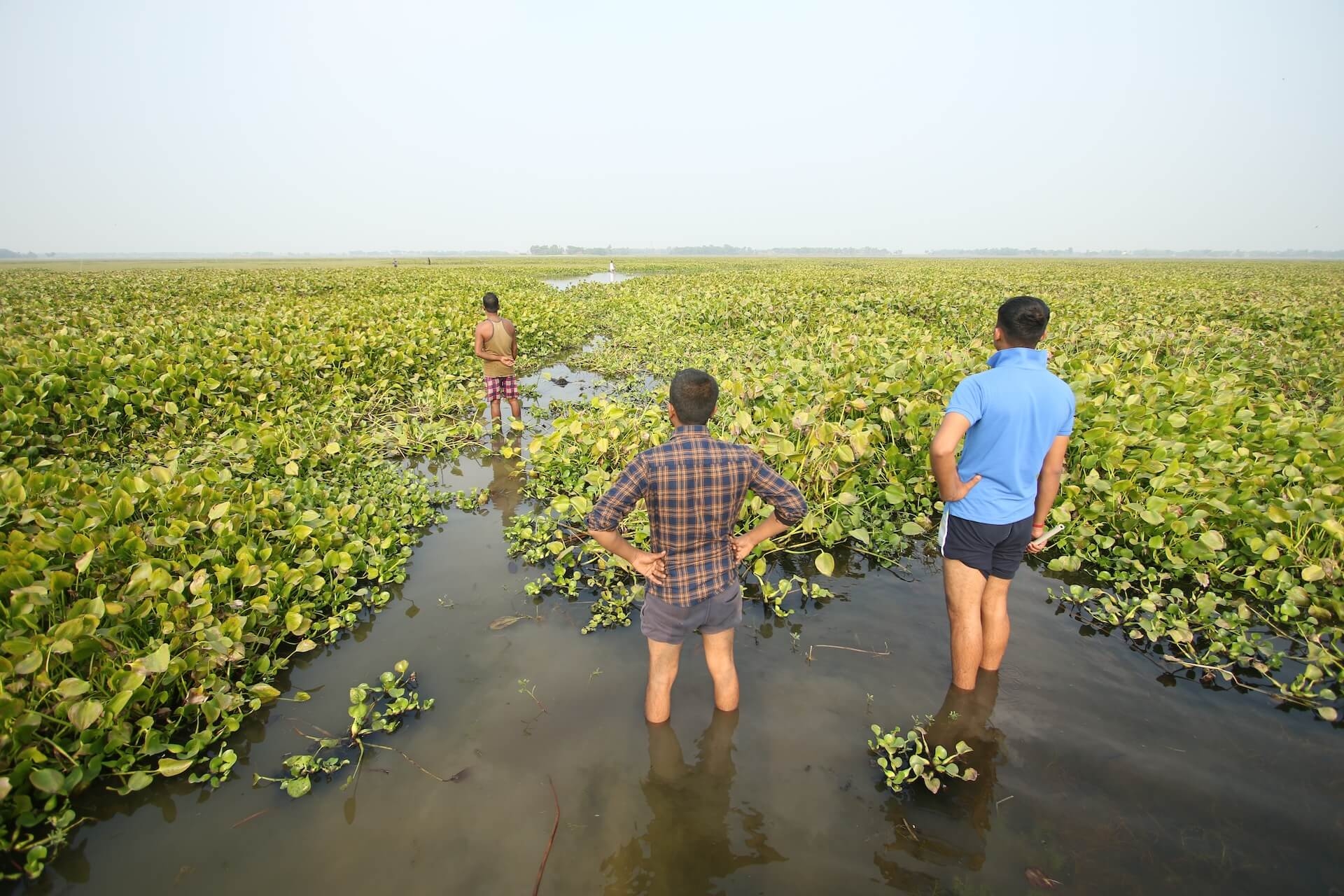
Community wellbeing and wetland conservation by addressing Water Hyacinth Invasion
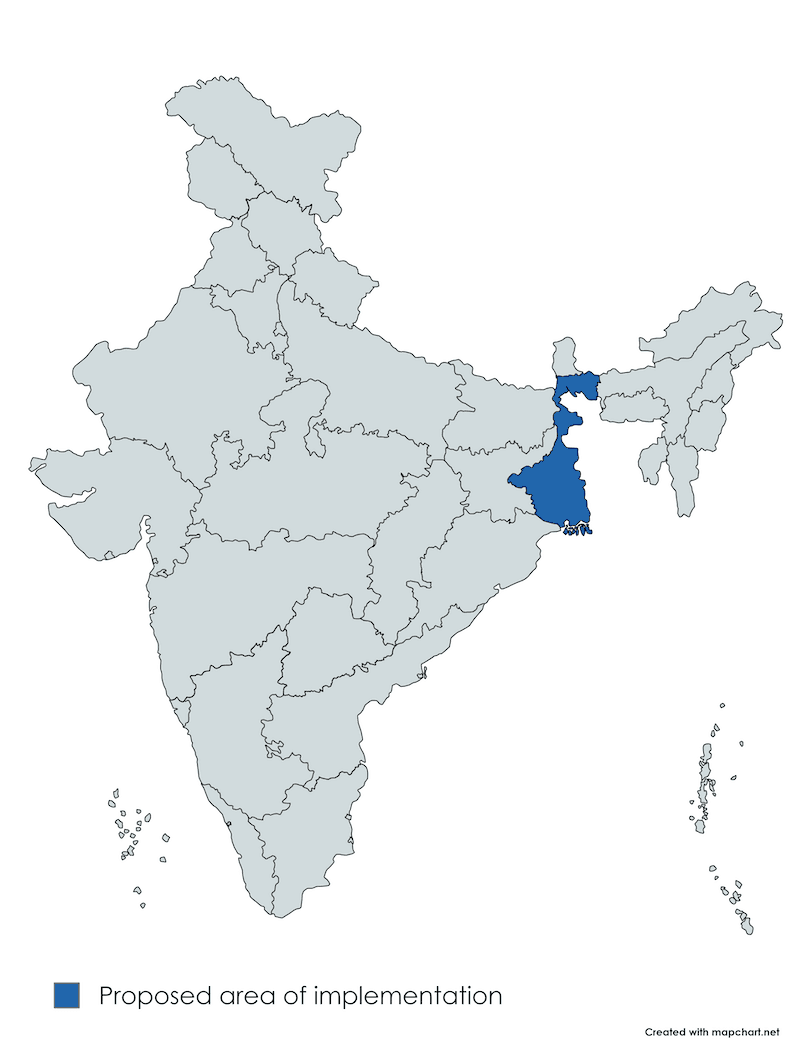
Community wellbeing and wetland conservation by addressing Water Hyacinth Invasion
Wetlands, crucial for climate resilience, face degradation and encroachment, particularly in developing countries like India. In West Bengal, invasive water hyacinth harms wetland health, disrupting ecosystem services and impoverishing dependent communities, especially women. Controlling this species is essential for conservation.
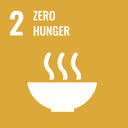
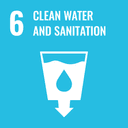
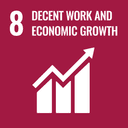
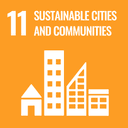
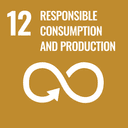
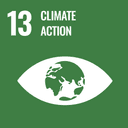
- (i) Eradicating hunger and poverty
- (ii) Education & livelihood
- (iii) Promoting Gender Equality
- (iv) Environmental Sustainability
West Bengal
Open for Funding
New Project
Executive Summary
Wetlands, invaluable ecosystems that provide us with food, water, and livelihoods, are being lost at a pace three times faster than forests due to a plethora of poorly understood and inadequately addressed threats. One of the greatest challenges to their conservation is the proliferation of water hyacinth, an invasive species wreaking havoc on these vital ecosystems. As a result, West Bengal's wetlands are choking and face imminent destruction due to this weed.
Recognised as essential carbon sinks and biodiversity hotspots, wetlands play a crucial role in mitigating climate change and supporting the achievement of Sustainable Development Goals (SDGs) through their provision of vital ecosystem services. Realising the urgent need for action, a comprehensive project has been devised to restore and safeguard these precious habitats from the ill-effects of water hyacinth proliferation.
The project's multifaceted approach includes wetland restoration through water hyacinth removal, the creation and marketing of water hyacinth products and generation of valuable data through wetland health report generation which will serve as advocacy tools to mobilize support for wetland conservation at local, regional, and national levels.
The expected impact of the project is manifold. Beyond the tangible benefits of restored wetlands and sustainable livelihoods, the project aims to foster a sense of ownership and stewardship among local communities, empowering them to become champions of wetland conservation. Furthermore, by generating scientific data and raising awareness about the importance of wetlands, the project seeks to catalyze broader policy changes and societal shifts towards more sustainable resource management practices.
The project's geographic focus spans the wetlands of West Bengal, particularly in districts like Hooghly and Murshidabad, where communities depend heavily on these ecosystems for their sustenance. By targeting these vulnerable areas, the project aims to directly impact the lives of marginalised communities, particularly women and landless individuals, who are most affected by wetland degradation. In essence, this project represents a holistic approach to addressing a complex environmental challenge, combining scientific research, community engagement, and sustainable economic development.
About the NGO
Human & Environment Alliance League (HEAL) is a public charitable trust, established in 2017 with the aim of addressing critical conservation issues threatening the ecological security of eastern India. These encompass mass ritualistic hunting, poaching and illegal wildlife trade, habitat encroachment and degradation, and human-wildlife conflict. HEAL tackles these complex problems using a multi-pronged approach that includes rigorous scientific research, engaging with local communities, conducting field investigations of wildlife crimes, collaborating closely with law enforcement authorities, and, when necessary, seeking judicial intervention through Public Interest Litigations.
- In February 2024, HEAL was felicitated with the "Nature and Biodiversity Conservation Award 2023" at International Conference and POP Festival for Youth-Led Climate Action at the India Habitat Centre in New Delhi
- In recognition of our work in the Sundarbans, the West Bengal Forest Department has felicitated HEAL in 2021, 2022 and 2023 on Global Tiger Day
- Our co-founder Tiasa Adhya is a President's awardee (Narishakti Puraskar 2016), Sanctuary Asia Wildlife Service awardee (2016), Future For Nature Foundation, Netherlands awardee 2022
- Our two other co-founders Meghna Banerjee and Suvrajyoti Chatterjee were co-recipients of the Sanctuary Asia Wildlife Service award 2020
Please Login to view the additional details or Register as Donor
- Problem Statement
- Larger Context
- Proposed Intervention
- Geography and demography
- Methodologies and activities
- Budget
- Additional Details